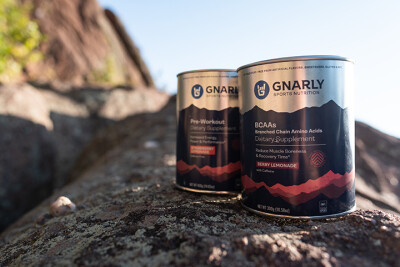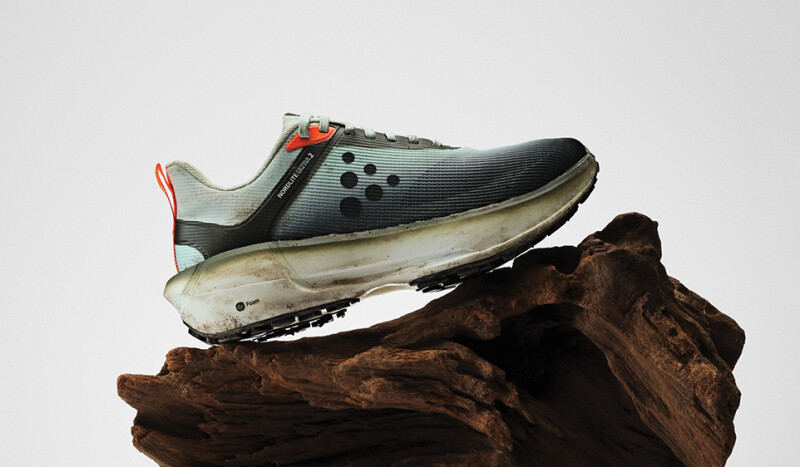When the subjects of ethical and environmentally-friendly efforts in run specialty are brought up, more often than not the fashion industry is the first category that comes to mind. While sustainable running apparel is all the rage in 2022, runners shouldn’t look past other non-apparel brands that are making significant sustainable efforts.
Just talk to Gnarly, a sports nutrition brand transitioning all of its packaging from plastic tubs to tin coated steel cans that are highly recyclable.
“Over the last 18 months, we’ve been trying to find a replacement for single use plastic packaging that not only makes a substantial improvement in packaging sustainability, but also maintains our high product quality standards,” says Gnarly CPO/COO Shannon O’Grady. “In addition to their superior recyclability, steel cans are also hermetic, or air tight, thus setting the standard for shelf life and product integrity. This is Gnarly Nutrition’s first step towards responsible packaging and we’re in it for the long game.”
The inspiration behind Gnarly’s recent shift to more eco-friendly steel packaging came from the fact that steel has the highest recycling rate of any material — with 71 percent of it being repurposed compared to plastic, which is only repurposed at around eight percent. Although Gnarly’s traditional tubs were made using recycled plastic, the brand discovered that plastic can only be repurposed one or two times before its broken down beyond recyclability.
Hence the shift towards the new steel cans, which are entirely made in the United States and have been available to customers since September, with its pre-workout and BCAA products being the first to fully transition.
“We know our customers trust our quality and effective products and we are focused on continuing to build a brand that we believe also resonates with our customers, which includes caring about the Earth and our impact on it,” adds CEO Eli Kerr. “These steel cans are just one step – albeit a giant one – for Gnarly towards more sustainable solutions for our packaging.
“I am proud of our team and their vision to do something different, something better than what has previously been done in the supplement industry. We are just getting started.”
The eco-effort has a retail benefit as well, according to director of marketing Liz Esche, who points out that promoting eco-friendly products in stores is essential for connecting with both the customers and the brands on their shelves.
“Retailers are key to promoting packaging that is more recyclable,” says Esche. “For their own knowledge, they can investigate which tubs and plastic are able to be recycled in their local area’s curbside program, then educate customers with proper signage.
“Most plastic bags and tubs, especially tubs made out of colored, non-white plastic, are unable to be recycled in curbside,” she adds. “On the other hand, steel and metal packing is recycled correctly over 70 percent of the time and all new manufactured steel, specifically, is already made up of two-thirds recycled steel.”
Educating customers about which of their favorite sports nutrition products use sustainable packaging is half of the benefit for retailers stocking eco-friendly products. Maintaining a close relationship with the dedicated brands that are well-versed in recycling can help retailers connect with customers about best practices as well.
“Helping educate customers on correct recycling tactics, investing and stocking products that promote better brand and consumer habits, and even helping by facilitating better recycling practices by hosting recycling stations, are all ways retailers can partner with companies like Gnarly who are trying to reduce plastic waste,” says Esche.






